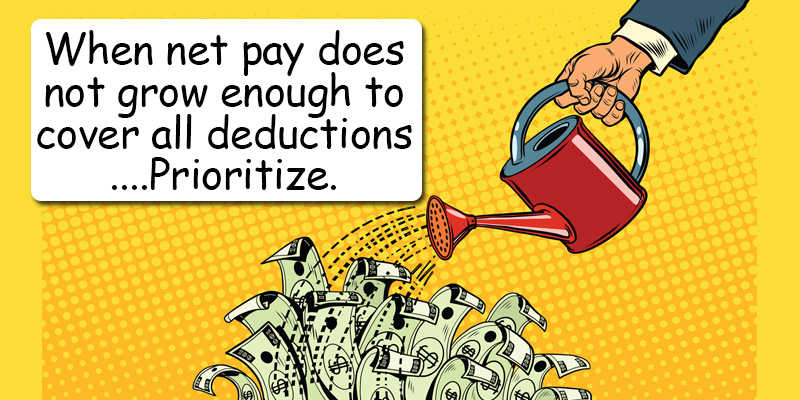There are times when an employee’s actual gross pay (excluding taxable fringe items) is insufficient to accommodate all of their deductions in full. In those cases where there is not enough net pay, there is an order in which deductions are to be processed until the check is zero. I am going to cover the basics of that order without going into the details of each specific deduction, as this would end up being a super-sized blog. Be sure to check out my previous blogs for details on some of the specific deductions. Deductions are taken in the order below,…
Posts published in “Benefits”
We all know that when we pay an employee in cash/wages, it is a taxable transaction to the employee. What is less commonly known is what should happen when something of value other than cash/wages is given. Gifts such as a Thanksgiving turkey, a $25 store gift card for a job well done, a Caribbean cruise vacation for meeting a sales quota, or even a Rolex watch for an employee’s twenty-year anniversary with the company all have different tax consequences. Sometimes the exact same gift given under two different situations may be taxed differently. This article will cover the…
Ever since the 2015 Obergefell v. Hodges case in which the Supreme Court of the United States ruled that the fundamental right to marry is guaranteed to same-sex couples by both the Due Process Clause and the Equal Protection Clause of the Fourteenth Amendment to the United States Constitution, it has been shown that the number of employers offering domestic partner benefits has significantly decreased. A year before the ruling (2014), a survey reflected that 59% provided benefits to same-sex domestic partners and just one year later (2016), 48% are providing benefits with that number decreasing each year. The reason…
According to a 2017 study by CareerBuilder, they determined that 78% of US workers live paycheck-to-paycheck and 75% of workers were in debt. With those statistics, many employers find it common to be approached by an employee for a loan or advance. While it may be seen as a way to improve employee morale, productivity, and employee loyalty, there are many other factors to take into consideration to avoid a detrimental impact. In this article, I will cover some of the little known aspects of employee loans and advances. First off is whether or not the loan is going to…
As we get into the health insurance renewal season, there are some smaller, non-ACA mandated businesses (less than 50 FTEs) that may consider dropping their small group health plan all together. An average of 20-30% group rate hikes year after year do take a toll on the bottom line, so it would not be surprising. In lieu of carrying a group health plan, some employers may even decide to simply reimburse their employees a set amount for them to obtain individual coverage, or maybe even pay for the employees individual health insurance costs directly. Unfortunately, 2013 guidance from the IRS…
We carry health insurance for routine ‘maintenance’ and unforeseen events, auto and home insurance for unexpected property losses, but what about protection and assistance with the day to day situations that could require legal assistance? Review of an agreement or contract ♦ securing a mortgage ♦ collecting or settling a debt ♦ credit report issues ♦ probate ♦ bankruptcy ♦ immigration ♦ divorce ♦ preparing a will ♦ traffic citation ♦ marriage ♦ purchasing faulty merchandise/consumer protection ♦ notary services ♦ these are all situations where having an attorney would be of great value, but sometimes the cost can be discouraging from having the much needed legal assistance. Studies have shown that 7 out of 10 people have experienced some sort of legal event in…
When the Tax Cuts and Jobs Act was signed into law back in December 2017, it included Section 45S to the IRS Code which includes a credit for employers who pay for family and medical leave. The credit is a percentage of the amount of wages paid to a qualifying employee while on leave for up to 12 weeks per taxable year. The minimum percentage is 12.5% and is increased by .25% for each percentage point by which the amount paid to a qualifying employee exceeds 50% of the employee’s wages, with a maximum credit of 25% (for employers that…
Under regulations of Section 125 of the Internal Revenue Code, an employer can implement various Plans which allows employees an opportunity to receive certain benefits on a pre-tax basis. In this article, we will look at the Premium Only Plan (POP), where employees can elect to pay their portion of insurance premiums on a pre-tax basis, creating a savings for both the employee and the employer. Setting up a POP is simple and you just need to have a Plan Document and Summary Plan Description in place that describes all benefits and establishes the rules for eligibility and elections. (If…
Effective January 1st, 2018, employers in New York State will be required to offer Paid Family Leave coverage for their workforce. Employer’s should prepare now for this new coverage and can even voluntarily comply and start the coverage earlier. Do not wait until December 31st. New York will become the fourth state requiring family leave coverage, following California, New Jersey, and Rhode Island. This coverage provides wage replacement and job protection to employees who need time off to bond with a new born, adopted, or fostered child, care for a family member with a serious health condition, or assist…
Compensatory time, aka Comp Time, has been an acceptable practice for government employees, but a recent bill passed by the House on May 2nd moves on to the Senate. Comp time is formally defined as time off that is accrued by an employee in exchange for cash overtime pay, or more precisely as 1.5 hours of Comp time in exchange for 1 hour worked of overtime. While this may be happening in private businesses today, it is currently a violation of the Fair Labor Standards Act (FLSA), and the Working Families Flexibility Act of 2017 (H.R. 1180) is looking…










